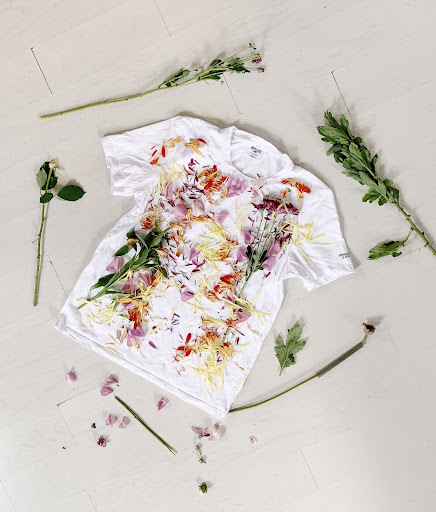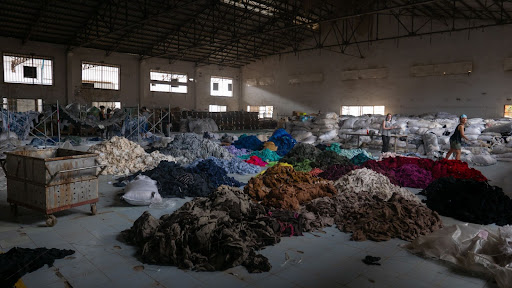
Photo: Anna Sullivan on Unsplash
Many greenwashing advertisements use earthy objects and colors.
How sustainable are your clothes?
If you were to open your closet right now, what brands would you see? You would most likely have fashion brands like Uniqlo, Zara, or luxury brands like Gucci and Louis Vuitton. You may prefer these companies because they’re fashionable, cheap, or trendy, but how sustainable are these brands?
In today’s world, it’s hard to determine whether a company is sustainable since many brands practice “greenwashing,” which is a standard method for businesses to advertise themselves to be more eco-friendly than they actually are. In 2019, H&M created a new clothing line called “Conscious” and claimed the “organic” clothes were made from recycled polyester. However, the Norwegian Customer Authority discovered the fashion brand’s new collection was, in fact, misleading and not non-polluting. Similarly, this year, Uniqlo collaborated with the Japanese fictional cat, Doraemon, and turned the character green as part of their marketing tactic to bring back customers after being accused of eco-destructive practices. Fortunately, we can now check a company’s possession of sustainable certifications—a simple yet effective way of ensuring you are consuming ethical brands.

FLOCERT is an independent certifier owned by Fairtrade International and has specific criteria to fairly assess companies for sustainable certifications. As expected, companies are only certified as “sustainable” if they demonstrate efficient environmental, social, and ethical practices. Out of the numerous verifications that FLOCERT provides, there are three notable certifications: the Fair Trade certification, the B-Corp certification, and the GOTS certification.
Fair Trade certifications are provided to companies that aim to protect workers’ rights by setting equal trade terms between farmers and buyers. Businesses must demonstrate that their producers are receiving enough money to cover the production costs. Currently, there are 2,000 Fairtrade-certified brands worldwide. To become certified like ABLE and Nisolo, companies must comply with workers’ rights, moral labor practices, and responsible land management.
B-Corp certifications are granted to companies like Patagonia and Allbirds, who produce profit while maintaining ethical work environments. There are over 3,300 B-Corp certified companies in 71 countries. Non-profit organizations cannot be certified; however, they can use the assessment requirements to improvise their services. B-Corp encourages companies to achieve their peak performance on social and economic sustainability through business tactics and innovative solutions. To be certified, companies must report their sustainability annually, assess their materials, manage strategies and targets for material issues, disclose tax philosophy and government affairs, and set up human rights policies.
The GOTS certification focuses on the organic status of the textile that is made in the industry. Fabrics made in industries have to be at least 70% organic for the company to receive this certification. The requirement spans from processing the material to manufacturing, packaging, labeling, and the distribution of the textiles. The number of GOTS-certified facilities is increasing each year, and currently, over 3 million people are working in GOTS-certified establishments. Some GOTS-certified companies are Everlane and Cole and Cleo.

(Photo: Francois Le Nguyen on Unsplash)
Sustainable certifications continue to deem vital as they motivate brands to improve their impact on the environment and their workers. Fashion industries worldwide leave a considerable carbon footprint yearly; brands use 93 million cubic meters of water annually, and 20% of the wastewater comes from fabric dyeing. Companies with FLOCERT certifications use biodegradable resources and reduce the amount of water used in production, creating a disparity in carbon emissions between certified and “greenwashing” companies. Moreover, workers in the industry would be safe from falling price markets as the certification requires companies to pay their legal minimum wage, reducing the number of people in slave labor conditions especially in developing regions.
Today, we are exposed to various information on social media, and it is simple to purchase clothes from brands that claim to be ethical but actually are not. Our job as consumers is to become educated about the sustainable status of brands before we readily support them. One reliable way to see whether the brand is certified by FLOCERT is to check their transparency by visiting their website’s “About Us” page.
So think twice before buying your clothes: are they really “sustainable” as they claim to be?